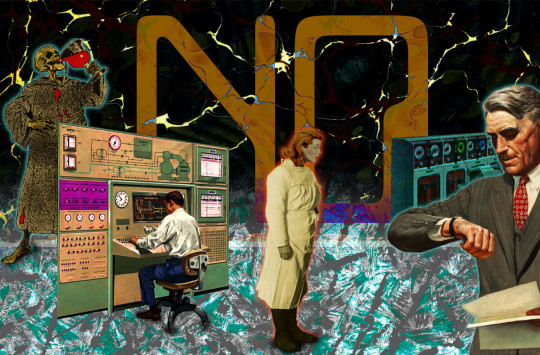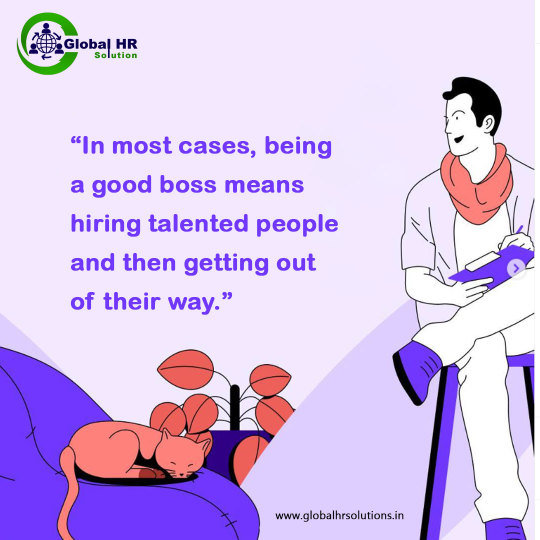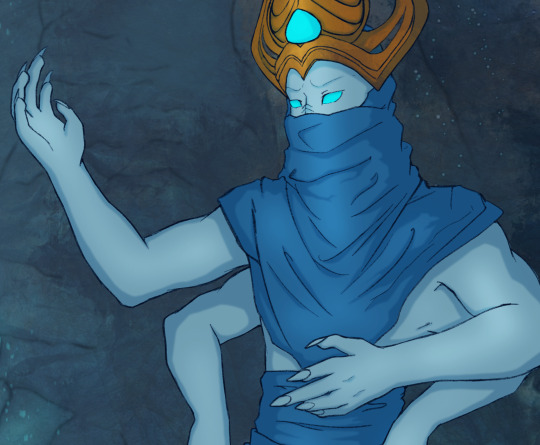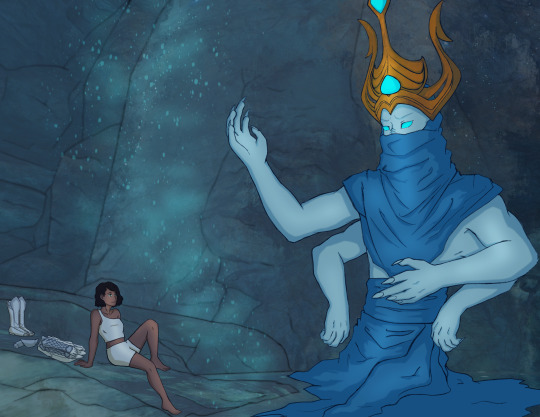#outsourcing humanity
Text
My father in law just told my betrothed he asked AI to write him a poem for his wife’s birthday.
I… cannot even. A poem, an expression of human sentiment and feeling, spit out by an uncomprehending machine as a string of words. Couldn’t even be bothered to feel his own feelings, he had a machine do it.
#ramblies#he said it was really good but hasn’t shared it with them yet#blows my absolute mind#outsourcing humanity
217 notes
·
View notes
Text
Cigna’s nopeinator

I'm touring my new, nationally bestselling novel The Bezzle! Catch me THURSDAY (May 2) in WINNIPEG, then Calgary (May 3), Vancouver (May 4), Tartu, Estonia, and beyond!

Cigna – like all private health insurers – has two contradictory imperatives:
To keep its customers healthy; and
To make as much money for its shareholders as is possible.
Now, there's a hypothetical way to resolve these contradictions, a story much beloved by advocates of America's wasteful, cruel, inefficient private health industry: "If health is a "market," then a health insurer that fails to keep its customers healthy will lose those customers and thus make less for its shareholders." In this thought-experiment, Cigna will "find an equilibrium" between spending money to keep its customers healthy, thus retaining their business, and also "seeking efficiencies" to create a standard of care that's cost-effective.
But health care isn't a market. Most of us get our health-care through our employers, who offer small handful of options that nevertheless manage to be so complex in their particulars that they're impossible to directly compare, and somehow all end up not covering the things we need them for. Oh, and you can only change insurers once or twice per year, and doing so incurs savage switching costs, like losing access to your family doctor and specialists providers.
Cigna – like other health insurers – is "too big to care." It doesn't have to worry about losing your business, so it grows progressively less interested in even pretending to keep you healthy.
The most important way for an insurer to protect its profits at the expense of your health is to deny care that your doctor believes you need. Cigna has transformed itself into a care-denying assembly line.
Dr Debby Day is a Cigna whistleblower. Dr Day was a Cigna medical director, charged with reviewing denied cases, a job she held for 20 years. In 2022, she was forced out by Cigna. Writing for Propublica and The Capitol Forum, Patrick Rucker and David Armstrong tell her story, revealing the true "equilibrium" that Cigna has found:
https://www.propublica.org/article/cigna-medical-director-doctor-patient-preapproval-denials-insurance
Dr Day took her job seriously. Early in her career, she discovered a pattern of claims from doctors for an expensive therapy called intravenous immunoglobulin in cases where this made no medical sense. Dr Day reviewed the scientific literature on IVIG and developed a Cigna-wide policy for its use that saved the company millions of dollars.
This is how it's supposed to work: insurers (whether private or public) should permit all the medically necessary interventions and deny interventions that aren't supported by evidence, and they should determine the difference through internal reviewers who are treated as independent experts.
But as the competitive landscape for US healthcare dwindled – and as Cigna bought out more parts of its supply chain and merged with more of its major rivals – the company became uniquely focused on denying claims, irrespective of their medical merit.
In Dr Day's story, the turning point came when Cinga outsourced pre-approvals to registered nurses in the Philippines. Legally, a nurse can approve a claim, but only an MD can deny a claim. So Dr Day and her colleagues would have to sign off when a nurse deemed a procedure, therapy or drug to be medically unnecessary.
This is a complex determination to make, even under ideal circumstances, but Cigna's Filipino outsource partners were far from ideal. Dr Day found that nurses were "sloppy" – they'd confuse a mother with her newborn baby and deny care on that grounds, or confuse an injured hip with an injured neck and deny permission for an ultrasound. Dr Day reviewed a claim for a test that was denied because STI tests weren't "medically necessary" – but the patient's doctor had applied for a test to diagnose a toenail fungus, not an STI.
Even if the nurses' evaluations had been careful, Dr Day wanted to conduct her own, thorough investigation before overriding another doctor's judgment about the care that doctor's patient warranted. When a nurse recommended denying care "for a cancer patient or a sick baby," Dr Day would research medical guidelines, read studies and review the patient's record before signing off on the recommendation.
This was how the claims denial process is said to work, but it's not how it was supposed to work. Dr Day was markedly slower than her peers, who would "click and close" claims by pasting the nurses' own rationale for denying the claim into the relevant form, acting as a rubber-stamp rather than a skilled reviewer.
Dr Day knew she was slower than her peers. Cigna made sure of that, producing a "productivity dashboard" that scored doctors based on "handle time," which Cigna describes as the average time its doctors spend on different kinds of claims. But Dr Day and other Cigna sources say that this was a maximum, not an average – a way of disciplining doctors.
These were not long times. If a doctor asked Cigna not to discharge their patient from hospital care and a nurse denied that claim, the doctor reviewing that claim was supposed to spend not more than 4.5 minutes on their review. Other timelines were even more aggressive: many denials of prescription drugs were meant to be resolved in fewer than two minutes.
Cigna told Propublica and The Capitol Forum that its productivity scores weren't based on a simple calculation about whether its MD reviewers were hitting these brutal processing time targets, describing the scores as a proprietary mix of factors that reflected a nuanced view of care. But when Propublica and The Capitol Forum created a crude algorithm to generate scores by comparing a doctor's performance relative to the company's targets, they found the results fit very neatly into the actual scores that Cigna assigned to its docs:
The newsrooms’ formula accurately reproduced the scores of 87% of the Cigna doctors listed; the scores of all but one of the rest fell within 1 to 2 percentage points of the number generated by this formula. When asked about this formula, Cigna said it may be inaccurate but didn’t elaborate.
As Dr Day slipped lower on the productivity chart, her bosses pressured her bring her score up (Day recorded her phone calls and saved her emails, and the reporters verified them). Among other things, Dr Day's boss made it clear that her annual bonus and stock options were contingent on her making quota.
Cigna denies all of this. They smeared Dr Day as a "disgruntled former employee" (as though that has any bearing on the truthfulness of her account), and declined to explain the discrepancies between Dr Day's accusations and Cigna's bland denials.
This isn't new for Cigna. Last year, Propublica and Capitol Forum revealed the existence of an algorithmic claims denial system that allowed its doctors to bulk-deny claims in as little as 1.2 seconds:
https://www.propublica.org/article/cigna-pxdx-medical-health-insurance-rejection-claims
Cigna insisted that this was a mischaracterization, saying the system existed to speed up the approval of claims, despite the first-hand accounts of Cigna's own doctors and the doctors whose care recommendations were blocked by the system. One Cigna doctor used this system to "review" and deny 60,000 claims in one month.
Beyond serving as an indictment of the US for-profit health industry, and of Cigna's business practices, this is also a cautionary tale about the idea that critical AI applications can be resolved with "humans in the loop."
AI pitchmen claim that even unreliable AI can be fixed by adding a "human in the loop" that reviews the AI's judgments:
https://pluralistic.net/2024/04/23/maximal-plausibility/#reverse-centaurs
In this world, the AI is an assistant to the human. For example, a radiologist might have an AI double-check their assessments of chest X-rays, and revisit those X-rays where the AI's assessment didn't match their own. This robot-assisted-human configuration is called a "centaur."
In reality, "human in the loop" is almost always a reverse-centaur. If the hospital buys an AI, fires half its radiologists and orders the remainder to review the AI's superhuman assessments of chest X-rays, that's not an AI assisted radiologist, that's a radiologist-assisted AI. Accuracy goes down, but so do costs. That's the bet that AI investors are making.
Many AI applications turn out not to even be "AI" – they're just low-waged workers in an overseas call-center pretending to be an algorithm (some Indian techies joke that AI stands for "absent Indians"). That was the case with Amazon's Grab and Go stores where, supposedly, AI-enabled cameras counted up all the things you put in your shopping basket and automatically billed you for them. In reality, the cameras were connected to Indian call-centers where low-waged workers made those assessments:
https://pluralistic.net/2024/01/29/pay-no-attention/#to-the-little-man-behind-the-curtain
This Potemkin AI represents an intermediate step between outsourcing and AI. Over the past three decades, the growth of cheap telecommunications and logistics systems let corporations outsource customer service to low-waged offshore workers. The corporations used the excuse that these subcontractors were far from the firm and its customers to deny them any agency, giving them rigid scripts and procedures to follow.
This was a very usefully dysfunctional system. As a customer with a complaint, you would call the customer service line, wait for a long time on hold, spend an interminable time working through a proscribed claims-handling process with a rep who was prohibited from diverging from that process. That process nearly always ended with you being told that nothing could be done.
At that point, a large number of customers would have given up on getting a refund, exchange or credit. The money paid out to the few customers who were stubborn or angry enough to karen their way to a supervisor and get something out of the company amounted to pennies, relative to the sums the company reaped by ripping off the rest.
The Amazon Grab and Go workers were humans in robot suits, but these customer service reps were robots in human suits. The software told them what to say, and they said it, and all they were allowed to say was what appeared on their screens. They were reverse centaurs, serving as the human faces of the intransigent robots programmed by monopolists that were too big to care.
AI is the final stage of this progression: robots without the human suits. The AI turns its "human in the loop" into a "moral crumple zone," which Madeleine Clare Elish describes as "a component that bears the brunt of the moral and legal responsibilities when the overall system malfunctions":
https://estsjournal.org/index.php/ests/article/view/260
The Filipino nurses in the Cigna system are an avoidable expense. As Cigna's own dabbling in algorithmic claim-denial shows, they can be jettisoned in favor of a system that uses productivity dashboards and other bossware to push doctors to robosign hundreds or thousands of denials per day, on the pretense that these denials were "reviewed" by a licensed physician.

If you'd like an essay-formatted version of this post to read or share, here's a link to it on pluralistic.net, my surveillance-free, ad-free, tracker-free blog:
https://pluralistic.net/2024/04/29/what-part-of-no/#dont-you-understand
#pluralistic#cigna#computer says no#bossware#moral crumple zones#medicare for all#m4a#whistleblowers#dr debby day#Madeleine Clare Elish#automation#ai#outsourcing#human in the loop#humans in the loop
235 notes
·
View notes
Text
ORV Characters Ranked by Least to Most Likely to Commit White Collar Crime
You guys said you wanted my ORV takes, and I try not to say things unsolicited, so I'll drop the good meta-analysis and literary criticism that I'm known for. For comedy purposes please pretend that ORV is American.
Omniscent Reader's Viewpoint characters broken down by likelihood to commit white collar crime, least to most:
Lee Hyeonseong: he's convinced that he's never committed a crime in his life. Intentionally, of course not. Unintentionally, he takes shopping for groceries extremely seriously, and is sometimes so wrapped up in the fruit inspection experience that he'll leave without paying. Due to his innocent face, bulk, and sheer confidence, he's never caught. In an economically thrifty maneuver, KDJ always sends him on snack runs for parties and texts him math problems while he's there. He insists it's like couponing. It's not couponing.
Jeong Huiwon: similarly, of course she would never choose to commit a crime. Also similarly, when KDJ says, 'Hey, wanna commit a crime?' she always participates. Since the crime is normally targeted at rich people, KDJ can usually morally justify it to her. She calls this harm reduction. It's not harm reduction.
Lee Jihye: would love to commit a crime in theory, almost never in practice. She has an idealized image in her mind of the ideal high school experience and it involves grand theft auto. However, the worst she ever gets is breaking
& entering and trespassing, mostly because she didn't stop to wonder if the building was abandoned or not. She can't even shoplift from Claire's.
Shin Yuseung: the kind of kid who sets the dissection frogs in the school laboratory free. Looks up illegal exotic animal trading on the deepweb and sighs in longing. But exotic pet trading isn't very Animal Rights of her, so she just leaks information to the CIA and busts the rings. Lee Gilyeong convinces her to track down shady sellers on Craigslist and bust their kneecaps. Neither of them view this as significantly different from the dissection frog liberation. KDJ gets her a rescued exotic cat for her birthday as a reward.
Lee Gilyeong: self-explanatory.
Han Suyeong: she's been pirating media since she was eleven and has never stopped. World-class expert in pirating everything. She's the unsung hero who rips the CDs and games and puts them online. Runs the pirating websites. Has never paid for a webnovel or manwha or manga in her life. Despite this, she insists that pirating books is immoral and that people should support small authors. The FBI knows she exists and has been trying to catch her for years. She brags about this constantly.
Yoo Sangah: has committed tax fraud before, will commit tax fraud tomorrow, is currently committing tax fraud. Embezzles her company's embezzlement. Insists that she's only committing victimless crimes, mainly because she doesn't view business executives as people. Her ability to evade the IRS is mythological and it's how KDJ got a crush on her.
Yoo Junghyeok: does not understand adult life well enough to knowingly commit any sort of white collar crime. He is this high on the list because he enables and helps KDJ in literally everything he does, especially using his clout as an influencer. This is because KDJ has convinced him that these things aren't crimes, and he doesn't understand adult life well enough to figure it out.
Kim Dokja: has done every white collar crime under the sun. I can't emphasize enough how much crime he does. He's currently blackmailing SYS's college tuition out of a US Senator. HSY makes the shell companies and launders so much money with him. Alternates between running a pyramid scheme and a ponzi scheme depending on the month. Started a cult that one time but we don't like to talk about that. Runs the betting ring for YJH's esports games. Fixes the games. YJH does not know he does this, but KDJ splits the profits and Yoo Mia also needs a college tuition so he decides not to think about it too hard. Big into crypto and runs every crypto scam you can possibly think of, which is normally where the the ponzi schemes come in. Steals YJH's identity often. Somehow everything he does is technically legal. The only crime he does not commit is pirating. Exclusively targets the wealthy and ultra-wealthy and has never stolen money from a poor person. Sugar daddies all of his friends and pays all college tuitions. Anonymously yet obviously sponsors huge amounts of money to YJH's Twitch streams, mostly in apology for the ID theft. Would really rather be living a quiet life in a big house with all of his friends, but that big house ain't gonna pay for itself.
#omniscient reader's viewpoint#orv#kim dokja#yjh#kdj#orv is about capitalism and systems of power and how they should be broken#and destroying the narratives of the powerful designed to keep us complacent and infighting and bootlicking#fucking shame how nobody's written a leverage au#'why do people tell stories' hope and love and the human condition :)#but also in order to control people determine their futures determine their fates#and even if the story isn't true you can make it true#like the fbi planting coke in black neighborhoods.#also hugely the capitalist exploitation of the entertainment industry#the chinese sweatshop worker makes the idol merchendise for the tired overworked korean#who works for little pay and no credit and overtime in the outsourced korean animation studios#for american cartoons that depressed americans watch because it offers a sliver of joy in our lives#bc the americans are being exploited by fascists and oligarchs#the korean idol is exploited by their superiors and dehumanized by their fans#i should probably make alla that a. different post jklasdf#anyway that's why they do so much crime fuck the system
121 notes
·
View notes
Text

Profits & Prices: Who makes what and what is paid by whom? Songs of commodities, costs, collateral, consumption, and compensation.
Cover image is a butcher selling mutton from Ms.4182 tav.138, the 14th-century Tacuinum Sanitatis held by the Biblioteca Casanatense.
The Money Crop- Malvina Reynolds
Who Reaps the Profits? Who Pays the Price?- Leon Rosselson
Working Reward- The Haymarket Squares
Pound a Week Rise- Siobhan Miller
Hey Ho- Tracy Grammer
The Hand That Feeds- The Crane Wives
Tomorrow Will Follow Today- Kathryn Roberts & Sean Lakeman
Age of the Robber Barons- David Rovics
The Falcon- Mimi & Richard Farina
Dictatorship of Capital- Alistair Hulett
You Stay Here- Richard Shindell
Le Diable et le Fermier- Windborne
Chemical Worker's Song- Jimmy Aldridge & Sid Goldsmith
Dying to Make a Living- The Local Honeys
Black Trade- The Unthanks
Something in the Rain- Tish Hinojosa
Free Enterprise- Jan Hammarlund
The Ballad of Accounting- Peggy Seeger & Ewan MacColl
The Capitalist Blues- Leyla McCalla
P.O.P. (Profit Over People)- The Moods
The Butcher's Sher- Daniel Kahn & the Painted Bird
21 tracks; 85 mins. [Spotify]
[my other playlists]
#original playlists#workers of the world#protest folk#here is the aforementioned#'no ethical consumption-profits valued more than people-dying to make a living-luxuries underpinned by human suffering-statusquo of capital#-sweeping unsavoury truths under the rug-acceptable losses-outsourced exploitation' thesis playlist#despite the cover the butchery is figurative.
36 notes
·
View notes
Text
#job interview#career#lucknow#jobs from home#artificial intelligence#best jobs#jobseekers#jobsearch#jobs#job#placement agency near me#placement agency#placement assistance#placement engineering colleges in bangalore#placement consultancy#placement agency in nagpur#recruitment process outsourcing#recruitment#recruiters#recreyo#parks and recreation#hiring and recruiting#recruitment services#recruitment agency#recruitment 2024#recruitment company#hiring#human resources#job hunting#fresher jobs
14 notes
·
View notes
Note
different asker but i would like to add on to the last ask if thats okay? curious to know which characters you think would be the opposite, like who can't shut down no matter how hard they try? bonus for the characters who have to outsource their self regulation a little
Nekomaru is an emotionally healthy man and he lets it all out! Usually in the gym but sometimes you might catch a Very tight hug and/or some tears (mostly a problem with the touch-averse crew). He can't fully shut it down you'll Notice the mood even if he doesn't say anything.
Fuyuhiko is fine at shutting down more sensitive feelings but he needs like actual help with his anger issues. They go 0 to 100 real fast and he doesn't even think to temper himself before he's already said or done something unhelpful. If he's sad he won't act on it but you'll still notice, he's worse at pretending than he thinks he is
Ibuki doesn't see why she would ever even try. (Redirecting the emotion is different)
Mikan obviously is very bad at keeping level headed when it comes to sadness, anxiety, and at times anger (but the last one is the quiet kind, less noticeable but more scary)
#not an art#Fuyuhiko Mikan Hiyoko and Kazuichi all need some help with emotions#Fuyuhiko with genuine aggressive anger Hiyoko with the mean girl bully stuff#Mikan with the over-apologizing (actually not helpful when you *are* sorry!) and inability to confront#And kaz with just. How he shows emotions to people (like Sonia and Gundham...) Like the fact that he has them is fine-#-but people aren't always ready to actively indulge them and he tends to take it as rejection rather than a boundary#But honestly everyone needs emotional help. This class is a mess. Let's not even mention teru and nagito#I assume that's what you meant by outsourcing?#Obligatory disclaimer: none of these are a diss on the characters it's observations#And also something most people need to do at least once in their life. Like cmon don't tell me you've never been overly nonconfrontational#Or somehow otherwise emotionally disregulated. Everyone does it everyone has it it's a human thing not a Moral Flaw
75 notes
·
View notes
Text
the issue with AI chatbots is that they should NEVER be your first choice if you are building something to handle easily automated forms.... consider an algorithmic "choose your own adventure" style chatbot first
it really seems to me that the air canada chatbot was intended to be smth that could automatically handle customer service issues but honestly... if you do not need any sort of "human touch" then i would recommend a "fancier google form"... like a more advanced flowchart of issues. If you NEED AI to be part of your chatbot I would incorporate it as part of the input parsing - you should not be using it to generate new information!
#literally everyone sees AI and gets so hard they black out and it ANNOYS me!#prediction/recognition AI is fine i guess it's not without flaws but it is leagues better than generative AI#but also - use the right tool for the job#like the article said it was using ai chatbot to handle customer service. Is it so hard to create a series of pre-made questions to guide#-a customer through the process? (this is called a wizard i think)#(most importantly wizards have been around for pretty much as long as GUIs have)#'oh but you need to hardcode it' yeah and hardcoding stuff came free with having a job. Turn your questions into a series of markdown#-documents if you need someone with no tech skill to come in and put in the questions#don't outsource it to an AI. You are lowering the overall tech literacy of the population here and im not kidding#there are good uses of AI.. Woebot is a really good chatbot that uses AI precisely because it has a lot of human oversight in it#but i really think that AI is something that you better have a PERFECT - not just good - justification for#sorry.... angry tech guy rant.... i swear i dont do this in real life... i just like typing...
10 notes
·
View notes
Text
The EU supports, finances and is involved in clandestine operations in North African countries to dump tens of thousands of Black people in the desert or remote areas each year to prevent them from coming to Europe, according to an investigative report published on Tuesday.
The year-long investigation was carried out by Lighthouse Reports, an investigative consortium, in collaboration with among others Washington Post, Der Spiegel, El Pais and Le Monde. The investigation focused on migrants in Morocco, Mauritania and Tunisia trying to reach Europe.
In a previous investigation published in December 2023, Lighthouse reported that the European Border and Coast Guard Agency (Frontex) had been sharing coordinates of migrant boats in distress in the Mediterranean Sea with a vessel run by a militia in eastern Libya.
In the new investigation, the Lighthouse team interviewed survivors and spoke with current and former EU staff members, as well as sources within national police forces and international organisations with a presence in the countries where the dumps are taking place. Using freedom of information laws, Lighthouses was also able to obtain internal documents.
According to Lighthouse, the team established that the EU is well aware of the dump operations and sometimes directly involved. Two senior EU sources said it was “impossible” to fully account for the way in which European funding was used. The International Organization of Migration (IOM) and the UN High Commissioner for Refugees (UNHCR) are also aware of the operations.
The internal documents obtained by Lighthouse show that EU officials had held internal discussions on some of the abusive practices since at least 2019. Crucially, the team matched vehicles used during the round-up and expulsions to vehicles provided by European countries by identifying tenders and carrying out visual analyses.
“When they see a black guy, they come,” said 25-year-old Lamine from Guinea who was detained, beaten and dumped in the desert by Moroccan forces despite having refugee papers from UNHCR. In many cases the dump sites are rife with organised crime and trafficking rings, and victims are enslaved and tortured.
continue reading
#eu#north africa#fortress europe#outsourced border controls#migrant deaths#migrant enslavement#human rights abuses#eu complicity
3 notes
·
View notes
Note
If your neighbor has a large wart on their nose, does not have the flat screen TV you have, and believes in conspiracy theories, how do you have a conversation with them about any of those things without seeming condescending? I guess carefully and with presence.
Good luck with that.
19 notes
·
View notes
Text
im so fucking mad about capitalism's devaluation of manual labor (especially financial, hi raise the fucking wages) and expectation to outsource labor, leading to dire exploitation (everyone is exploited, but manual workers especially AND don't get compensated for the toll on their body AND get looked down on unlike white collar workers, all that because making intellectual products is worth 10 times more money i fucking guess). The average person used to have so many more practicak skills and we used to know how make so much more stuff, having people cook, clean, take care of your children and sew for you was the height of luxury for a wealthy woman, depending so much on buying to substain your lifestyle was reserved to the extremely wealthy. People were expected to hold more basic skills outside of a hyperspecific field of their career like today and were allowed to spend time on broad and practical knowledge, and today schools do not even out the playing field because it's still mostly theoric regurgitation (which great, but give all the youngsters a cooking, crafting and sewing class and teach them accounting im begging) making people into highly specific tools relying on buying most of what they don't even think they can make, because disempowered. (this is linked to capitalist shaming of perceived failure and beginners and imperfection but that's a whole other can of worms)
Like for example it was just a given painters made their own paint (or started by making it for their mentor, any way they were taught how), it was considered a necessary first step, a way to understand your medium, and a way no to depend on anyone else or a corporation, and i think a lot of artists are missing that step of having to spend effort on the medium itself. I don't know how my graphic tablet works and i can't make acrylic paint and that's a shame
Like it was always normal for the already rich to leave all physical work to exploited workers but today it's everyone else's case too (at least in the economic north), making your own stuff is a counterculture thing, and even poverty or being an exploited worker eats so much of time that it makes it so buying is necessary and stuff made with exploited labor the only affordable option, fucking vicious cycle
there were deep inequalities with how the teaching of those skills were segregated, which was for which gender and social class, im not saying it was universally good, and women were expected to accumulate way more skills just to do all the managing of a household AND get that labor devalued, just, urgh, it was considered important to know at least i guess
also the birth of packaging and the rise of single use plastic+ worldwide transport of goods is heavily linked to this and a consequence of a global economic boom but it's still a fucking disaster-
anyways buy a s little new shit in as little packaging as you can and fuck corporations
#this post is not about disabed people being unable to do physical work. they need that outsourced labor. i am talking about people who can#but have straight up forgotten making it was an option (thanks advertising bombardement)#that's what i mean when i say craft and diy and zero waste communities need to be taking an anticapitalist approach#dependance to other people's labor is not inherently bad (no human can do everything anyways) but that level of dependance in every area of#life used to be something expectional and isn't realyy possible to extend to all human population without exploitation#and not the rule. nor was making things discouraged#im getting into paint and inkmaking hi#hope i make sense#anticapitalism#reflecting on the past is so interesting they got a LOT wrong but some parts were damn better#like yeah fuck that 90s when sweets are baked not bought post (hello the 90s were consumerist as fuck#but also the culture of making your own stuff being the norm ? kinda right#fuck trads and their romantization of the bigoted parts of the past return to tradition is bad but returning to more self reliance yeah goo#i don't know if i make sense
11 notes
·
View notes
Text

Best Recruitment Services Agency | Global HR Solution
website :https://globalhrsolutions.in/recruitment-services
#hr solutions#human resource solution#hr#hrm#temporary staffing#contractual recruitments#contractual staffing#outsourcing service#outsourcing taxation#outsourcing accounting#outsourcing finance#business consulting#staffing#contractor#placement consultancy#placement agency#human resources#recruitment#hrmanagement#payroll#hiring#talent acquisition#corporate compliance#executive search#global hr solutions#b2b services#b2b lead generation#b2bmarketing#outsourcing#onlinebusiness
2 notes
·
View notes
Text
idk if people know this but the rust belt and appalachia are not mutually exclusive. pennsylvania is mostly described as an appalachian state because of our history of coal mining but we are also very much a rust belt state (especially in the western part). rust belt is an economic term (that also coincides with rail) but appalachia is a geographic term with economic elements. nobody would say kentucky isn't the south. and the economic elements of the rust belt and appalachia are the same: capitalism came, worked us to the bone, poisoned us, and left us to die.
#btw this is why if you're an appalachian you should care about the congo#caring about the congo is being a decent fucking human being#but western powers are outsourcing the poison and broken bodies to where they wont see it anymore
2 notes
·
View notes
Text



A commission we ordered of Zommoros and Miyani resting mid-journey in the water-filled cavern in Derelict Delve, done by @ImasyonA ✨
#gw2#miyani gw2#zommoros gw2#stuck in rarepair hell#when you're an artist who only has two hands and need more art of the blorbos so you outsource#ImasyonA#gw2 human#djinn gw2#zommiyani
14 notes
·
View notes
Text
this fucking course is such bullshit the damn online test thing just tested me for an entirely different topic (that i was unable to access), nitpicked my wording for no reason (i entered "safety/cut resistant gloves". the 'correct' answer? "gloves". ffs.), and marked me as wrong on one question bc whoever built the shitty 3d section of the test made the mistake THAT THE TEST IS SUPPOSED TO BE TEACHING US NOT TO MAKE. IN A 3D MODEL NOT EVEN A REAL BUILDING CHRIST ON A STICK. the human instructor is fucking amazing but this new online-based curriculum is shitty and half-assed as fuck.
#i am minorly disappointed i didn't do this before this year but SUPER glad i didn't leave it any later#the impression i get is that they're trying to semi-automate the course to be Hip and With It and also cut back on staffing costs maybe#but the people doing it don't have any fucking clue what they're doing when it comes to computer systems#so half of it's broken and they're like outsourcing a bunch of it to fucking youtube instructables i wish i was joking here#and you have to enroll in each topic individually but some topics reference others so if you have one but not the other you're fucked#and you can't just enroll in all of them the instructor has to open enrolment individually & give you the password for that window#this is a trade we're studying for btw it's hands on stuff that should be taught by humans who you can ask questions#and i'm super lucky that my instructor is actually good at his job but oh my god#the secondhand shame in this man's eyes every time something stupid breaks on the website. heartbreaking.
4 notes
·
View notes
Text
being as i’m writing amon as a grand marquis of hell, he’s absolutely strong enough to have taken out mam clanton if he wanted, which makes his appealing to wynonna and doc to do it so much funnier. he just... didn’t want to go through the hassle. because if he killed mam, then he’d have to kill cleo and holt and probably billy too, for good measure. and then there’s their reaper ancestors to worry about and before you know it, it’d just become this whole thing and that’s just too much work. so of course he’d rather have a tentative peace and let them do whatever they want so long as they let him do whatever he wants. and it works, for nearly two years. and then the earps come to him with their family feud and the opportunity to get rid of them is too good to pass up. after all, why do anything yourself when you can outsource your problems and make them someone elses?
#〈 ⸸ 〉 : study –– i don't pick sides. i'm in it for myself.#''they’re more powerful than me ://'' shut up ur literally one of the stronger princes of hell#you’re just outsourcing because you like inciting chaos and war among the humans#i see you#he’s just a shitty little demonic business man and unfortunately i love him
3 notes
·
View notes
Text
*hits bong* boy do i have some thoughts about team rocket's potential transgressions.
#ooc tag tba .#making an origami boy is just One Of So Many Regrettable Things#stares at mew. stares at ditto. stares at the proliferation of glitch events that are a direct fallout of mewtwo's creation.#stares at the black sites they've outsourced to silph co to purposefully open gateways into glitch city with a view to harness its horrors#stares at ash's dad. stares at the pokemon trafficking. stares at the unethical human and pokemon experimentation#listen i just like it when team rocket are Actually Fucking Terrible. cheffa kiss#this isn't your mom's rp blog this is a TURBO rp blog
6 notes
·
View notes